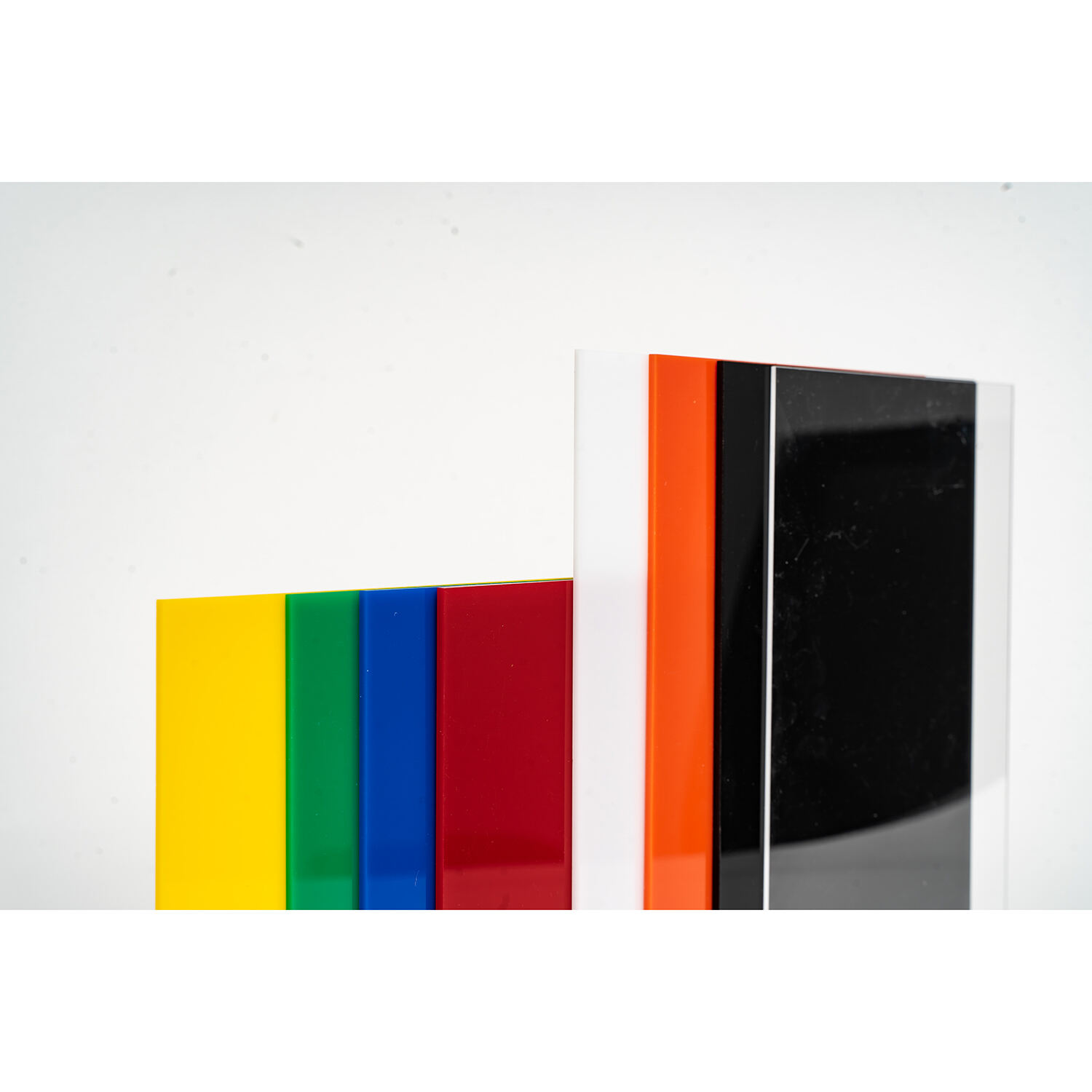Understanding the Revolutionary Impact of PMMA Materials in Modern Healthcare
The medical device manufacturing industry has witnessed remarkable advancements in recent years, with PMMA emerging as a game-changing material that continues to transform healthcare solutions. This versatile thermoplastic, also known as acrylic or poly(methyl methacrylate), has become an integral component in creating innovative medical devices that enhance patient care and treatment outcomes. Its unique combination of properties makes it an ideal choice for numerous medical applications, from surgical instruments to implants and diagnostic equipment.
Medical device manufacturers worldwide are increasingly turning to PMMA for its exceptional characteristics and reliability in healthcare settings. The material's remarkable optical clarity, biocompatibility, and durability have made it an invaluable resource in developing cutting-edge medical solutions. As we delve deeper into the benefits and applications of PMMA in medical device manufacturing, we'll explore how this remarkable material is shaping the future of healthcare technology.
Essential Properties of PMMA for Medical Applications
Superior Optical and Physical Characteristics
Among the most notable features of PMMA is its outstanding optical clarity, which surpasses that of many other polymers used in medical devices. This exceptional transparency makes it perfect for applications requiring visual inspection or precise light transmission. The material allows up to 92% light transmission, making it ideal for diagnostic equipment and medical imaging devices.
The physical properties of PMMA also contribute to its widespread use in medical manufacturing. It offers excellent dimensional stability, meaning it maintains its shape and size under varying environmental conditions. This stability is crucial for medical devices that require precise measurements and consistent performance. Additionally, PMMA's low moisture absorption rate helps prevent degradation and ensures long-term reliability in medical applications.
Biocompatibility and Safety Standards
PMMA has demonstrated remarkable biocompatibility, making it safe for use in various medical applications. The material has undergone extensive testing and meets stringent medical safety standards, including ISO 10993 requirements for biocompatibility. This certification ensures that devices manufactured using PMMA pose minimal risk of adverse reactions when in contact with human tissue.
The material's chemical stability also contributes to its safety profile. PMMA remains stable under normal physiological conditions and resists degradation when exposed to bodily fluids. This stability prevents the release of harmful substances and ensures the longevity of medical devices manufactured with this material.
Applications in Contemporary Medical Devices
Surgical Instruments and Equipment
Medical device manufacturers utilize PMMA extensively in developing surgical instruments and equipment. The material's clarity and durability make it perfect for creating precise surgical tools, viewing windows in medical equipment, and protective shields for various devices. Its ability to withstand sterilization processes without degradation ensures these instruments maintain their integrity through multiple uses.
In operating rooms, PMMA-based devices provide surgeons with clear visibility and reliable performance. From surgical microscope lenses to protective barriers, the material's properties contribute to improved surgical outcomes and enhanced safety for both medical professionals and patients.
Implants and Prosthetic Applications
One of the most significant applications of PMMA in medical device manufacturing is in the creation of implants and prosthetic devices. The material has proven particularly valuable in orthopedic applications, where it serves as bone cement for joint replacements. Its mechanical properties and biocompatibility make it an excellent choice for long-term implantable devices.
In dental applications, PMMA is widely used for creating dentures, temporary crowns, and other dental prosthetics. The material's ability to be precisely shaped and colored, combined with its durability and aesthetic properties, makes it ideal for these applications. Additionally, PMMA-based dental devices can be easily modified and repaired when necessary.
Manufacturing Processes and Considerations
Processing Methods and Quality Control
Manufacturing medical devices with PMMA requires specialized processing methods to ensure optimal results. The material can be processed through various techniques, including injection molding, extrusion, and machining. Each method must be carefully controlled to maintain the material's properties and meet medical device quality standards.
Quality control measures are particularly crucial when working with PMMA in medical applications. Manufacturers must implement rigorous testing protocols to verify the material's properties, ensure dimensional accuracy, and confirm compliance with regulatory requirements. This includes monitoring for potential contaminants and verifying sterilization compatibility.
Cost-Effectiveness and Production Efficiency
When considering the economic aspects of medical device manufacturing, PMMA offers significant advantages. The material provides an excellent balance of performance and cost-effectiveness, making it an attractive option for both small-scale and mass production. Its processing characteristics allow for efficient manufacturing cycles and minimal material waste.
The durability and longevity of PMMA-based devices also contribute to their overall cost-effectiveness. The material's resistance to wear and degradation means devices require less frequent replacement, resulting in lower long-term costs for healthcare providers and patients.
Future Trends and Innovations
Advanced Material Developments
Research and development in PMMA technology continue to drive innovations in medical device manufacturing. Scientists are exploring modified versions of PMMA with enhanced properties, such as improved impact resistance and antimicrobial characteristics. These developments promise to expand the material's applications in medical devices even further.
New manufacturing techniques, including 3D printing with PMMA-based materials, are opening up possibilities for customized medical devices and improved production efficiency. These advancements are particularly promising for creating patient-specific implants and medical devices with complex geometries.
Sustainability and Environmental Considerations
The medical device industry is increasingly focusing on sustainability, and PMMA aligns well with these goals. The material's durability means devices last longer, reducing waste and replacement frequency. Additionally, research is ongoing into recycling methods for PMMA medical devices, contributing to more sustainable healthcare practices.
Manufacturers are also exploring bio-based alternatives and environmentally friendly processing methods for PMMA, aiming to reduce the environmental impact of medical device production while maintaining the material's essential properties.
Frequently Asked Questions
What makes PMMA suitable for medical device manufacturing?
PMMA is ideal for medical devices due to its exceptional optical clarity, biocompatibility, dimensional stability, and resistance to sterilization processes. It also meets strict medical safety standards and offers excellent durability, making it perfect for both long-term implants and everyday medical equipment.
How does PMMA compare to other materials in medical applications?
PMMA stands out for its unique combination of properties, including superior optical clarity, biocompatibility, and cost-effectiveness. While other materials may excel in specific areas, PMMA provides a well-rounded solution that meets diverse medical device requirements while maintaining economic viability.
What are the primary challenges in processing PMMA for medical devices?
The main challenges include maintaining strict quality control during processing, ensuring consistent material properties, and meeting regulatory requirements. Manufacturers must also carefully control processing parameters to prevent material degradation and maintain the high standards required for medical applications.

